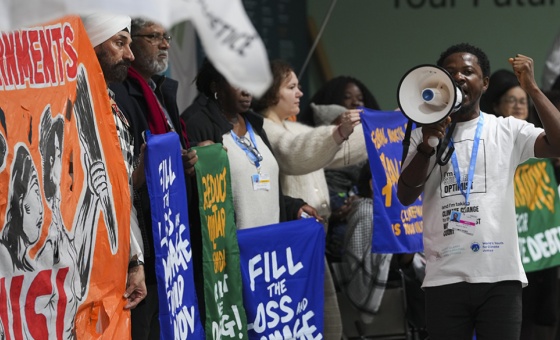This is the last article you can read this month
You can read more article this month
You can read more articles this month
Sorry your limit is up for this month
Reset on:
Please help support the Morning Star by subscribing here
IRANIAN air defences fired back when an Israeli drone attack targeted a major air base and a nuclear site near the central city of Isfahan today.
The strike came just days after Iran launched a drone and missile assault on Israel in retaliation for an April 1 Israeli air strike on Tehran’s consulate in the Syrian capital Damascus.
Israel had vowed to respond, leading Iranian officials warn that they would retaliate in turn.
The air base has been home to Iran’s fleet of US-made F-14 Tomcat fighter planes, which were bought before the 1979 Islamist revolution.
The nuclear facility operates three small Chinese-supplied research reactors as well as handling fuel production and other activities for Iran’s civilian nuclear programme.
Iranian army commander General Abdolrahim Mousavi said crews had targeted several flying objects following reports of drones approaching.
“The explosion this morning in the sky of Isfahan was related to the shooting of air defence systems at a suspicious object that did not cause any damage,” he said.
The United Nations nuclear watchdog said there was “no damage to Iran’s nuclear sites” after the incident.
The International Atomic Energy Agency said it “continues to call for extreme restraint from everybody and reiterates that nuclear facilities should never be a target in military conflicts.”
Italian Foreign Minister Antonio Tajani said that the United States had told a G7 meeting today that it had received a “last-minute” notice from Israel about the attack on Isfahan.
US Secretary of State Antony Blinken did not dispute the claim, but he said that Washington was “not involved in any offensive operations.”
Asked by reporters to describe the current US-Israeli relationship, Mr Blinken noted that Israel makes its own decisions and the US is committed to its security.
Following a three-day meeting of their foreign ministers, the Group of Seven (G7) countries urged Iran and Israel “to prevent further escalation.”
A statement pledged support for Israel’s security and condemned “in the strongest terms” what the ministers described as Iran’s “unprecedented attack against Israel of April 13-14, which Israel defeated with the help of its partners.”
It added that the G7 nations were ready to place further sanctions on Iran “or take other measures, now and in response to further destabilising initiatives.”
On the war in Gaza, the group called on Hamas to release the remaining hostages it took in its October 7 attack and reminded Israel to respect international and humanitarian law.









